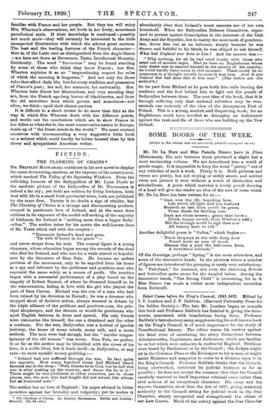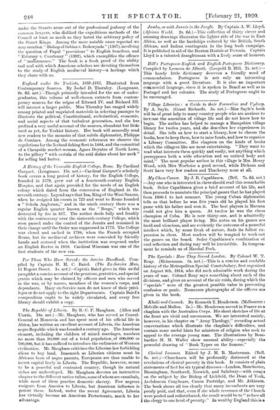Select Cases before the King's Council, 1243-1482. Edited by I.
S. Leadam and J. F. Baldwin. (Harvard University Press for the Selden Society.)—The late Mr. Leadam began to compile this book and Professor Baldwin has finished it, giving the docu- ments, annotated, with translations facing them. Professor Baldwin's introductory essay, supplementing his well-known book on the King's Council, is of much importance for the study of Constitutional history. The editor warns his readers against the fatal error of antedating the sharp distinctions between Administration, Legislature, and Judicature, which are familiar to us but which were unknown in mediaeval England. Petitions were heard by Parliament or by the Council ; the Judges might sit in the Common Pleas or the Exchequer to try a ease, or might assist Ministers and magnates to come to a decision upon it in the King's Council. Professor Baldwin thinks that the Council, being overworked, restricted its judicial business as far as possible ; he does not accept the common view that the Council carefully reserved to itself Important criminal cases rather than civil actions of an exceptional character. His essay and the reports themselves show that the Act of 1487, giving statutory authority to the Council sitting for judicial work in the Star Chamber, simply recognized and strengthened the oldest of our Law Courts. Much of the outcry against the Star Chamber under the Stuarts arose out of the professional jealousy of the common lawyers, who disliked the expeditious methods of the Council at least as much as they hated the arbitrary policy of the Stuart Kings. Among the more notable cases reported we may mention " Bishop of Sabina v. Bedewynde " (1307), involving the question of Papal " provisions " to English benefices, and " Esturmy v. Courtenay " (1392), which exemplifies the offence of " maintenance." The book is a fresh proof of the ability and zeal with which American scholars are devoting themselves to the study of English mediaeval history—a heritage which they share with us.



































 Previous page
Previous page